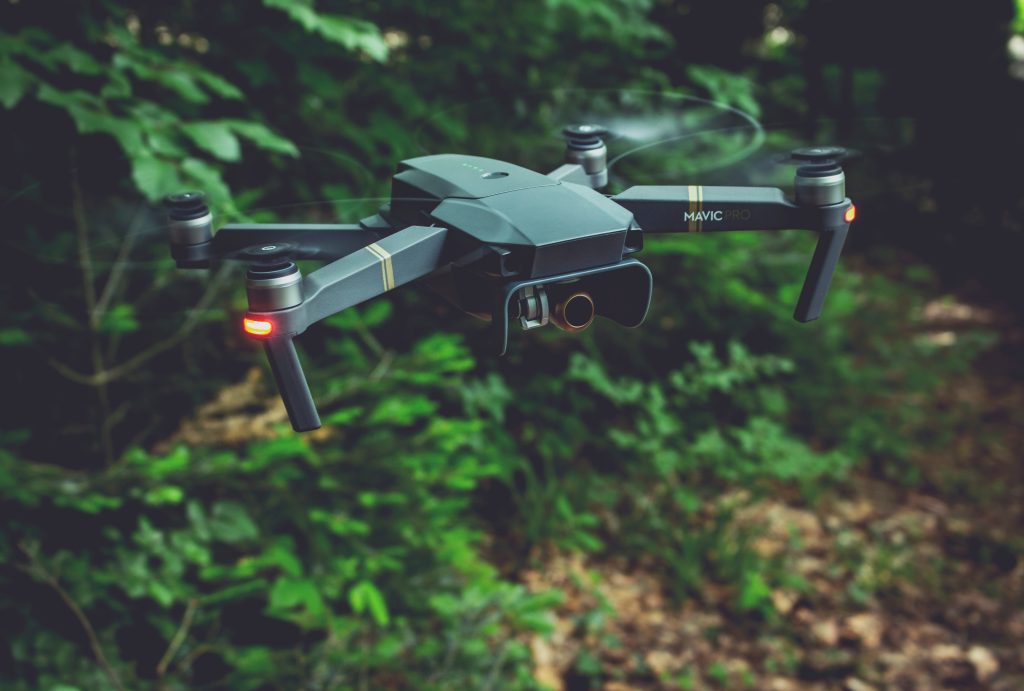
London Gatwick Airport’s flight schedule grinded to a halt on the evening of 12th December 2018 after a single drone was reportedly spotted over the airfield. You have probably seen the chaos on national news: 760 flights grounded the following day due to disruption; passengers interviewed on the news claiming to have lost anywhere between £70 and £4,000 on missed-out flights and holidays; the detention of two suspects who turned out not to be guilty after all, and who were called “the morons who ruined Christmas” by The Sun; rumours that there wasn’t even a drone after all. It was all a big embarrassment that a small commercial drone could seemingly fool the public, the Police, the Army, and the entire British Government.
The mystery of the Gatwick drone has exposed how integrated drones have become in our modern society; how crime, technology, travel, economics, and politics are somehow interlinked with a small recreational gadget typically used for aerial photography or racing through hoops at 100 mph. The truth of the matter is that drones are far more integrated in our society than we might think: with representation in videogames and real-life deployments in war zones for example. It is time we talked about how drones are more than just nuisance toys and start to think about how they might be evolving our modern societies.
Drones are everywhere. That underwater short film you saw on YouTube in 4K? A drone filmed it. Looking for a Lego set for your nephew? He can build a drone. Ordered a new set of cutlery because your flatmates keep losing your spoons? Don’t worry, an Amazon drone might be delivering that in the future. Drones may highlight feelings of excitement and anticipation for developing a new frontier of technological innovations which fuel our increasingly automated society. I will say though that if you’re watching a 4K drone video on YouTube then R.I.P. your internet connection – decent WiFi in a student house seems like such a sci-fi idea sometimes.
Business Insider predicts that global investment in drone hardware will increase in the government, consumer, and enterprise sectors to almost US$12 billion (combined) by the turn of the decade, so we may be on our way to seeing some major technological innovations in the drone world which could change the way we live for the better. National Geographic report that drones are already being developed for wildlife protection to better protect our ecosystems, as well as for agricultural management which can increase the efficiency of crop yields. Some fantastic research at Johns Hopkins University, Maryland, USA has led to the discovery that blood is unaffected by drone trips which means that the delivery time for blood for emergency transfusions could be reduced drastically by taking to the skies.
With most good things, however, drones have their negative connotations. Military drones have been one of the staples of ‘the war on terror’ for many years, with the RAF alone carrying out 2,767 drone strikes in just 4 years (August 2014 – June 2018) against supposed “insurgents” connected to terrorist activity. These attacks are understandably justified by our Western governments as retaliations against numerous terrorist attacks, all of which we hear in the news and keep in our memories for decades.
Perhaps we are going too far when it comes to the utilisation and representation of military drones. The US military have invested heavily in the videogame industry to produce war-related games which help train gamers become soldiers, drone operators, tacticians, you name it. You can even get a drone game on your phone which, though primitive compared with real drone simulations, may be subtly training you to get used to drone combat and accept it as an everyday activity.
Lockheed Martin, a major company which develops military drones and fighter jets, recently opened their first research lab outside the US at the University of Melbourne, Australia – infiltrating an educational establishment with the hope that young students will help fuel Western wars against terror through drone education. Are we being brainwashed by what The Guardian unapologetically labelled in 2012 “propaganda and training tools for the military”? Maybe we should be more careful with what we teach and where we teach it when it comes to drones so that we do not end up imposing our ideologies through the medium of war against those who do not have drones and do not have a voice to fight back, despite potentially being innocent.
Drones can be a helpful tool for all of society or a harmful weapon to those we deem dangerous. Either way, with the ubiquitous presence of drones in our skies, it looks like Doc from Back to the Future was right – “Roads? Where we’re going we don’t need roads”.
